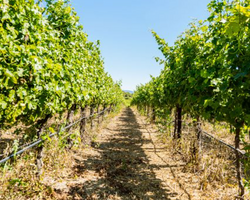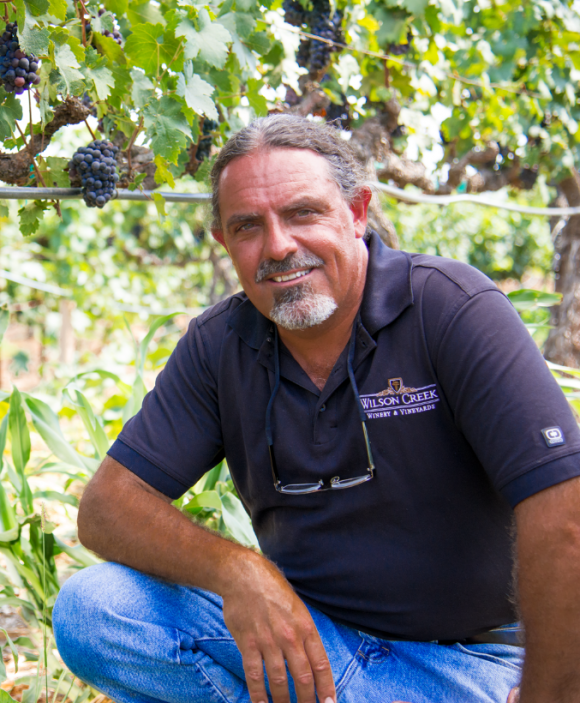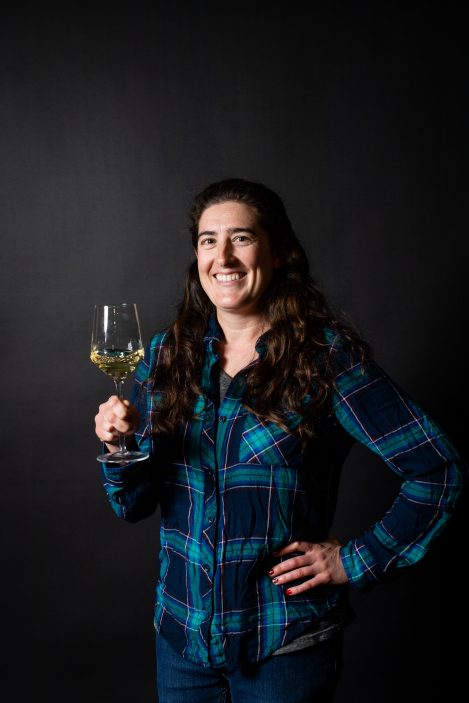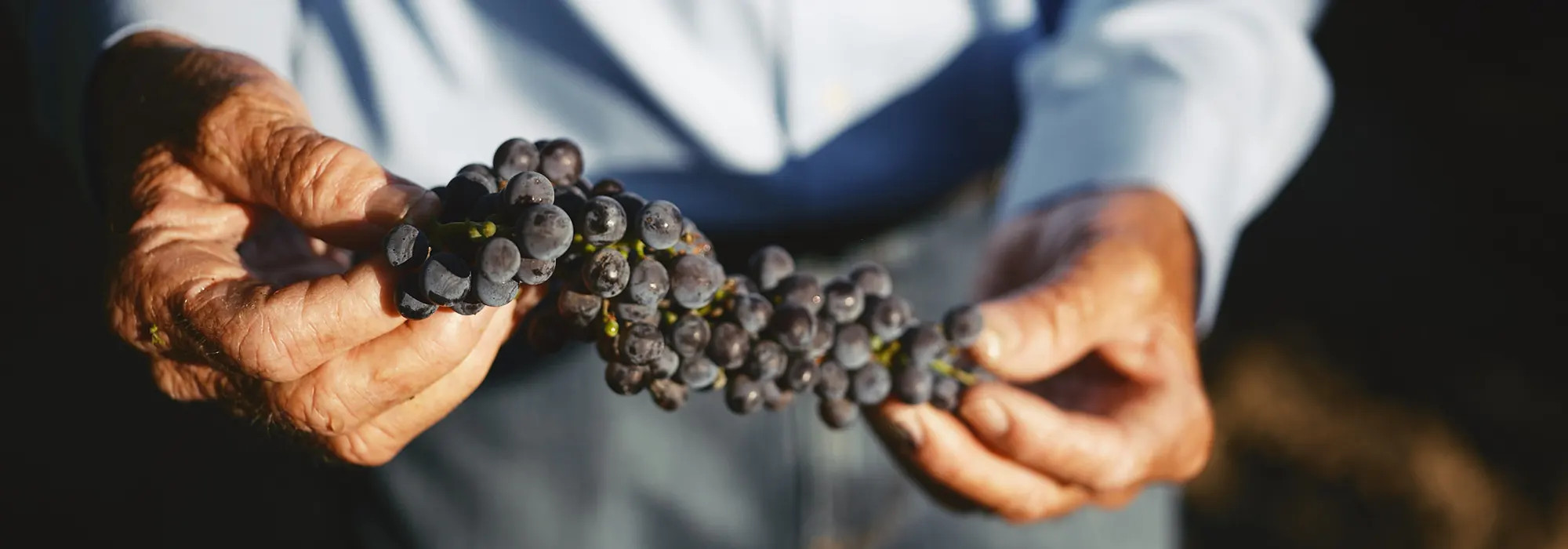Toast Temecula Valley This Earth Day

This SoCal region will be making award-winning wines for generations to come thanks to their robust sustainability efforts and regenerative agricultural practices
Nestled in the rolling hills of Southern California, Temecula Valley is emerging as a beacon of sustainable viticulture, marrying age-old winemaking traditions with pioneering environmental practices. The region, famed for its warm Mediterranean climate, diverse range of grape varieties, and welcoming tasting rooms, has also become a hotbed for regenerative agriculture, where wineries strive not merely to coexist with nature but to actively rejuvenate their land. This approach, championed by local vintners, emphasizes soil health, water conservation, and biodiversity, ensuring that the vineyards not only produce high-quality grapes but also contribute to the ecological balance and social well-being of the valley.
Several Temecula wineries are leading the charge in this green revolution, adopting organic farming techniques that shun synthetic pesticides and fertilizers in favor of natural alternatives. These practices not only enrich the terroir but also foster a sustainable ecosystem conducive to premium winemaking. Among the vineyards, one can witness a harmonious blend of traditional methods and innovative strategies aimed at reducing the carbon footprint and preserving the natural beauty of the region for future generations. In exploring Temecula’s commitment to sustainability, we delve into the stories of these pioneering wineries, their philosophies, and the tangible impact of their efforts on both the environment and the quality of their wines.

Palumbo Family Vineyards & Winery
The Palumbos have been active participants in the California Sustainable Winegrowing Alliance since 2002, and were one of the first wineries in Temecula Valley to become certified through this program. “We not only became certified in our vineyard, but also in our winery, knowing that if you are truly committed to sustainability, you have to look at your whole business and its impact on the community,” says owner/winemaker Nick Palumbo.
Palumbo notes that they share many of the same tenets and practices of regenerative farming, although they place equal emphasis on the three “Es” of sustainability. “After all, being Environmentally friendly, socially Equitable, and Economically sound is more than a business model,” he says. “By living on property, raising our children here, and being active members in our community, it is important to be good stewards of the land and good neighbors, as well as being able to continue to do business in a positive and ethical way.”

Robert Renzoni Vineyards, a trailblazer in sustainable winemaking in Southern California, achieved a significant milestone in 2023 by obtaining certification as a California Sustainable Winegrowing (CSWA) operation and becoming the region’s first winery to be fully powered by solar energy. “As a family-owned winery dedicated to producing high-quality wines, Robert Renzoni Vineyards shares the commitment to preserving sustainable agriculture and protecting the land for future generations,” says winemaker Olivia Bue.
They are also deeply committed to soil and nutrient management to maintain vineyard health. “Healthy soil is the basis of sustainable winemaking and has a direct impact on wine quality,” says Bue. “In order for Temecula Valley to continue succeeding and growing as a region, we need to prioritize our land for future generations.”
The winery’s care for the soil includes integrating high quality compost (the most nutrient dense material) from Amended Soils in Sonoma into their own soil, planting cover crops annually to stimulate biological activity and enhance organic matter content within the soil, avoiding synthetic fertilizers (they are a pesticide-free estate), implementing rain water collecting tanks to limit water usage, properly managing pH and vine balance, and managing pests with organic materials when necessary. “Our commitment to the land goes beyond just sustainability,” adds Bue. “It’s about creating a partnership that benefits both the environment and the community for decades to come.”

Wilson Creek Winery and Vineyards
Wilson Creek has long been fully committed to a program of regenerative agriculture. They started with a traditional sustainability program eleven years ago, which included the elimination of all herbicides, the introduction of cover crops, reduced and eliminated tillage, irrigation, efficiency, and a program of reduced fungicides and insecticides through integrated pest management programs.
Seven years ago, led by vineyard manager Greg Pennyroyal, they introduced a regenerative agriculture program. “The core concept of regenerative agriculture is that all things are connected in a diverse community of self-regulating related systems,” explains Pennyroyal. “To assist in managing these complex systems, we started a program of environmental-monitoring and data-gathering to see the effects of our regenerative program.”
This extensive program includes a rigorous regimen of tasks, including biweekly plant sap analysis during the growing season, which gives a detailed quantitative report over time of the actual uptake of all major and minor plant nutrients, monthly soil health assessments, Glassy Winged Sharpshooter monitoring, and the introduction of beneficial insects and insectary flowering plants, among many other activities. It also includes ongoing collaborative studies with other regulatory agencies, utilities companies, government entities, and private businesses for monitoring and cause-effect analysis.
And the proof is in the pudding. “Block Nine is our most intensive biologically supported block,” notes Pennyroyal. “After three years, Block Nine is showing significantly increased yields, decreased pathogen pressure, improvement of vineyard microbiome, and improved winemaking. We are also monitoring economic inputs and returns to demonstrate not only the scientific but the economic viability of regenerative practices.”
Pennyroyal and his team are always the first to support others in their efforts toward sustainable practices. “Sustainability has generally been focused on limiting additional negative impacts on the environment,” he says. “Considering our current state of accelerating ecosystem degradation, we feel we need to go beyond stability and move towards regeneration. Regeneration is not only limiting negative factors but also supporting overall ecosystem services to reverse the downward spiral towards an upward spiral of improvement in diversity and resiliency.”
He believes that Temecula Valley is in a unique position to lead these efforts both locally and in other wine-producing regions, given their climate for wine production, as well as access to outreach through direct-to-consumer experiences. “The public is often confused by the newly emerging science of true ecosystem restoration and regeneration,” he explains. “By directly engaging with our guests, we can deliver an authentic person-to-person experience and understanding.”

Ponte Winery began its transition to sustainable practices in 2007, and, in 2011, became the first winery in Temecula Valley to achieve the Certified California Sustainable Winegrower designation. A key aspect of their environmental strategy is the “no tillage” approach, which they have implemented to control erosion and maintain the integrity of organic matter in the soil, limiting soil disturbance to just once a year for weed management. They have also embraced the use of native cover crops since 2007. “We work to respect the land by not introducing non-native plants into the vineyard,” says assistant winemaker Juan Domingo. “We leave fields fallow for a minimum of two years with only native plants to let the soil rest before we replant.”
Always pushing their sustainability efforts forward, Ponte has been committed to recycling glass, cardboard, and cork since 2007, ensuring that waste materials are repurposed and not simply sent to landfills. This recycling initiative is a significant part of their sustainability efforts, reflecting their dedication to environmental stewardship across all their properties.
“We take care of the land and business as one,” says winemaker Arnaud Debons. “We started as leaders in sustainability, and we would like to continue to be the one others get inspiration from. In doing so we as a Valley can help reduce our Carbon footprint while still providing good hospitality to our guests.”

South Coast Winery & Carter Estate Winery
South Coast Winery and its 200-acre vineyard have been certified sustainable since 2013, with sister property Carter Estate Winery joining the ranks in 2018. Both are accredited by the California Sustainable Winegrowing Alliance. Their sustainability efforts prioritize resource conservation – in particular water – with more than 100 acres of vineyards relying on water sourced from their own reservoir, a critical strategy given the recurring drought conditions fueled by climate change. To that end, the winery’s vineyard management practices are finely tuned to optimize water use and availability.
In a concerted effort to ensure the health of their grapevines, both properties minimize synthetic inputs and implement rigorous pest and disease monitoring and control. “An exceptional aspect of our vineyard ecosystem is its integration with the natural environment, exemplified by our vineyards bordering the Cleveland National Forest,” says assistant winemaker Emily Bloom. “We endeavor to maintain harmony with the surrounding ecosystem, fostering the growth of native plants and encouraging natural pest control through neighboring wildlife.”
Bloom and her team understand that sustainability is not a one-and-done philosophy and acknowledge that there is always room for progress. But they also know that these efforts are non-negotiable when it comes to safeguarding viticulture in Temecula Valley and beyond for generations to come. “In line with global trends, Temecula Valley, like much of the world, is experiencing more extreme weather due to intensified climate change. It’s crucial for us all to acknowledge this reality and continually improve our farming and winemaking practices,” she says. “Many wineries and vineyards in the area are already leading the way with sustainable, organic, and regenerative methods, inspiring us to strive for a more sustainable future. We commend the hard work of growers in the valley and remain committed to crafting distinctive wines from high-quality grapes through environmentally responsible practices.”


